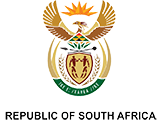Education
The most significant contribution we can make to inclusive economic growth is in the development of appropriate skills and capabilities.
A number of interventions are being implemented to improve the quality and relevance of our educational outcomes. Investments in early childhood development and early school learning in particular will yield great economic benefits in the next two decades.
Vocational and technical education
We are making progress with the introduction of the three-stream curriculum model to meet the diverse needs of South Africa’s youth. This includes a strong focus on vocational and technical skills.
Germany to help boost SA’s vocational training:
— Inyathelo (@Inyathelo) February 12, 2020
"President Cyril Ramaphosa & visiting German Chancellor Angela Merkel have launched an initiative for Germany to lend South Africa its renowned expertise in vocational training"https://t.co/bIdlCIBb4s
via @dailymaverick #highered pic.twitter.com/lSYHkZexb1
Various technical vocational specialisations have already been introduced in 550 schools, and 67 schools are now piloting the technical occupational stream.
We are building nine new TVET college campuses this year, in Sterkspruit, Aliwal North, Graaff Reinet and Ngungqushe in the Eastern Cape, and in Umzimkhulu, Greytown, Msinga, Nongoma and Kwagqikazi in KwaZulu-Natal.
Construction has already begun on nine new TVET colleges campus sites scheduled for completion in 2020.
Scholarships
Through bilateral student scholarship agreements with other countries, more and more young people are travelling overseas each year for training in critical skills.
We have seen the impact this can have with the Nelson Mandela Fidel Castro Medical Training Programme in Cuba, which has produced over 1,200 medical doctors, with a further 640 students expected to graduate in December 2020.
University of Science and Innovation
A new university will be established in Ekurhuleni to train young people in high-impact and cutting-edge technological innovation. Ekurhuleni is the only metro in our country that does not have a university.
[MUST WATCH] President Cyril Ramaphosa announces the establishment of a new University of Science and Innovation in Ekurhuleni #SONA2020 #SONAon405 #Newzroom405 pic.twitter.com/3F4AcpfRkY
— Newzroom Afrika (@Newzroom405) February 13, 2020
The new institution will focus on study areas such as robotics, data science and machine learning.
Early education
The Department of Basic Education will table a bill this year to make two schooling years prior to Grade 1 compulsory.
[ICYMI] Bill to make early childhood development compulsory. @DBE_SA Minister Angie Motshekga says the department will table a bill this year that will make two schooling years before Grade 1 compulsory. #ECD #Education Read more here: https://t.co/SddVqQT51Z pic.twitter.com/wNDzz02cPX
— South African Government (@GovernmentZA) February 19, 2020
The new Coding and Robotics Curriculum, meanwhile, is being piloted in grades R to 3 in 200 schools this year, with a plan to implement it fully by 2022.
Student accommodation
Young people at universities and TVET colleges across the country are facing serious accommodation challenges. A total of R64 billion will be spent over the next few years to improve student accommodation, and at least another R64 billion will be leveraged in private investment.
R64bn for accommodation - Ramaphosa's #Sona2020 promise for homeless students https://t.co/2JPHWdyLAj pic.twitter.com/HZohQ1S3P3
— Eyewitness News (@ewnupdates) February 13, 2020



